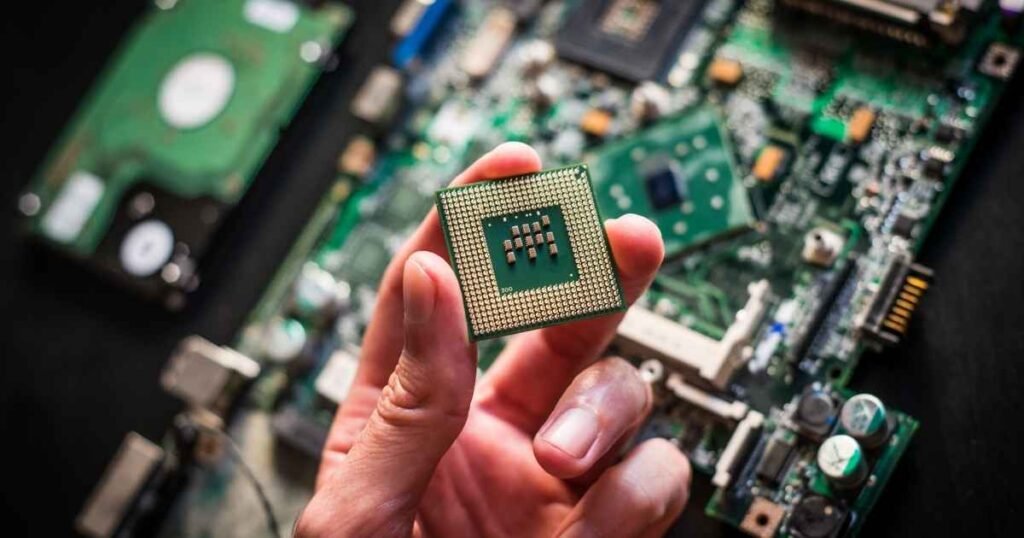Is Zen 3 outdated? This question has been on the minds of AMD enthusiasts and tech lovers who closely follow the rapid advancements in computer hardware. In the ever-evolving landscape of processor architectures, where technological improvements are constant, it’s natural to wonder whether is Zen 3 outdated and still holds its ground in today’s competitive market. To truly understand the answer, we must delve into the features, performance metrics, and real-world applications of Zen 3 while comparing it to cutting-edge alternatives. By examining its capabilities and AMD’s roadmap for future architectures, we can determine whether is Zen 3 outdated to be reckoned with in the world of computer processing.
The world of computer tackle and technology evolves at a snappy pace. Processor architectures, in particular, tend to be at the heart of these discussions, constantly improving to deliver better performance, power efficiency, and scalability. At the center of such debates, a question arises for AMD enthusiasts and tech lovers alike—is Zen 3 outdated? This question took the industry by storm upon release, leaving many computer enthusiasts curious about whether it still holds its ground in today’s competitive landscape.
This blog takes a deep-dive into Zen 3’s features, performance metrics, and real-world applications while examining whether it remains relevant compared to cutting-edge alternatives. and tell us about “is Zen 3 outdated?” in extreme detail.
Must Read: Nothing2Hide Net Gaming: Discover Endless Thrills and Adventure
Is Zen 3 outdated: Understanding Zen 3 Architecture
To understand whether is Zen 3 is outdated, we must first revisit what Zen 3 brought to the table. Released by AMD in late 2020, the third iteration of their revolutionary Zen architecture series drastically improved performance and efficiency. Built on a refined 7nm process, Zen 3 marked a significant leap from its predecessors. With IPC (Instructions Per Cycle) improvements of up to 19%, as AMD claimed, Zen 3 became a standout player in gaming rigs, content-creation systems, and professional workspaces.
Key Features of Zen 3:
- Improved Performance: Zen 3 delivers significant IPC (Instructions Per Cycle) improvements, offering a noticeable boost in processing power and overall performance.
- Enhanced Efficiency: Built on a refined 7nm process, Zen 3 optimizes power consumption and thermal management, resulting in improved energy efficiency and cooler operation.
- Higher Core Counts: Zen 3 processors offer higher core counts, enabling more parallel processing and multitasking capabilities.
- Advanced Architecture: With architectural advancements, Zen 3 introduces new technologies and optimizations that further enhance performance in gaming, content creation, and professional workloads.
- Compatibility: Zen 3 processors are compatible with existing AM4 motherboards, providing a seamless upgrade path for users looking to harness the power of Zen 3 without requiring a new motherboard.
These key features make Zen 3 a compelling choice for those seeking powerful and efficient processors to meet their computing needs.
Is Zen 3 Outdated? A Balanced Perspective
The Evolution of Zen Processors
AMD’s Zen processors have witnessed an extraordinary evolution, setting new benchmarks for performance and efficiency. While Zen 3 has garnered immense praise for its remarkable improvements, it’s essential to consider whether it remains relevant in the face of upcoming architectures.
Unleashing the Power of Zen 4
With the imminent release of Zen 4 in 2022, AMD continues to demonstrate their commitment to pushing boundaries. Built on an enhanced 5nm process, Zen 4 promises even greater instructions per cycle (IPC) gains and power efficiency, propelling performance to new heights. With support for DDR5 and PCIe 5.0, Zen 4 addresses the demands of future-oriented technologies, offering enhanced speed and data transfer capabilities.
The Ever-Changing Landscape of Technology
Before concluding whether is Zen 3 is outdated, it’s important to contextualize the speed at which technology evolves in the hardware industry. CPU architectures generally evolve in 2 to 3-year cycles, with greater leaps added through node shrinks and new designs. For AMD, this consistent cadence of innovation means new processors like Zen 4 are already entering the market.
But how does Zen 3 compare to its predecessors and competitors? While its adoption eclipsed the Zen 2 architecture in many facets, current Intel and even newer AMD processors outperform Zen 3’s benchmarks in many demanding scenarios. Still, some tasks, especially gaming at resolutions above 1080p, show little difference in performance, indicating that Zen 3 has aged gracefully.
As trends like artificial intelligence and machine learning begin to dictate processing power needs, Zen 3 does, however, face challenges in efficiency for workloads like AI inference or simulations. That poses the question, is Zen 3 outdated, or is it simply situational?
Real-World Performance and User Experience
To decide whether Zen 3 is outdated, we also need to evaluate how it performs under real-world conditions. Enthusiasts have shared countless insights into Zen 3-based systems, and case studies continue to demonstrate its excellence in both everyday computing and high-load tasks.
Gaming
Zen 3 processors, such as the Ryzen 5 5600X and Ryzen 9 5950X, remain top picks for a majority of gamers due to their incredible single-threaded performance. Pair that with GPUs like AMD’s Radeon RX 6000 or NVIDIA’s RTX 3000 series, and many systems operating on Zen 3 continue to deliver ultra-smooth frame rates for modern titles at 1440p or even 4K.
Content Creation
For video editors, 3D artists, and streamers, Zen 3’s multi-threaded prowess makes it a star performer. The high core count and IPC improvements of models like the Ryzen 9 5900X provide ample compute power. It may not surpass Zen 4 or Intel 13th-Gen chips in specific metrics, but few users report bottlenecks when handling tasks like rendering or live encoding. This raises the nuance of whether “outdated” means “insufficient”—clearly, Zen 3 still punches well above its age.
Everyday Performance
When used in general computing tasks, Zen 3 remains snappy and reliable. For regular office work, multitasking, and browsing, setups based on processors like the Ryzen 7 5800X perform smoothly in common scenarios.
Market Dynamics and Consumer Expectations
In the highly competitive landscape of processor technology, market dynamics and consumer expectations play a pivotal role in shaping the future of AMD’s architectures. As technology continues to advance at a rapid pace, consumers are demanding processors that offer superior performance, energy efficiency, and innovative features. AMD, recognizing these needs, is continuously striving to meet and exceed consumer expectations.
With the introduction of Zen 4 in 2022 and the highly anticipated Zen 5 on the horizon, AMD’s roadmap reveals a commitment to pushing the boundaries of innovation. Zen 4, built on an improved 5nm process, promises to deliver even greater IPC gains and power efficiency, elevating the overall performance of AMD processors. Notably, Zen 4 addresses one key concern of Zen 3 by introducing support for DDR5 and PCIe 5.0, essential features that future-proof systems and unlock new possibilities.
Looking further ahead, Zen 5 represents an exciting chapter in AMD’s architectural evolution. With AMD teasing a substantial overhaul, consumers can anticipate groundbreaking advancements that will further redefine the capabilities of processors. As the market dynamics continue to evolve, AMD remains dedicated to delivering cutting-edge technologies that empower users with exceptional computing experiences.
In this rapidly evolving landscape, AMD’s relentless pursuit of innovation, coupled with a deep understanding of consumer expectations, positions them as a frontrunner in the processor market. With each architectural iteration, AMD continues to raise the bar, setting new standards for performance, efficiency, and consumer satisfaction.
What Sets Us Apart
Continuous Innovation
At AMD, innovation is at the core of everything we do. We are driven by a relentless pursuit of pushing the boundaries of technology, constantly striving to deliver cutting-edge advancements that empower users with exceptional computing experiences. Our commitment to innovation enables us to stay ahead of the curve and adapt to the ever-evolving market dynamics, ensuring that our customers always have access to the latest and greatest technologies.
Deep Understanding of Consumer Expectations
We pride ourselves on our deep understanding of consumer expectations. By actively listening to our customers and closely monitoring market trends, we gain valuable insights into their needs and preferences. This allows us to develop products and technologies that not only meet but exceed their expectations. Our customer-centric approach drives us to continuously improve and innovate, ensuring that we deliver solutions that truly resonate with our users.
Unmatched Performance, Efficiency, and Satisfaction
When it comes to performance, efficiency, and overall user satisfaction, AMD stands in a league of its own. With each architectural iteration, we raise the bar, setting new standards for what processors can achieve. Our Zen 4 architecture, constructed on an improved 5nm process, offers even greater IPC gains and power efficiency. And while Zen 3 may have missed support for DDR5 and PCIe 5.0, rest assured that Zen 4 is here to fulfill those future-oriented requirements. Looking ahead, the upcoming Zen 5 architecture holds exciting promises for substantial advancements that will shape the future of computing.
As AMD continues to lead the way in the processor market, our dedication to innovation, deep understanding of consumer expectations, and unmatched performance, efficiency, and satisfaction set us apart from the competition. We are excited to embark on this journey of technological excellence with you, shaping the future of computing together.
Future
Is Zen 3 outdated? This question might arise as technology continues to advance at an astonishing pace. Rest assured, Zen 3 processors are far from being outdated. In fact, they represent a pinnacle of performance and efficiency in the maarket. However, it’s important to acknowledge that technology never stands still. As we move forward, AMD’s Zen 4 architecture will bring even more exciting advancements to the table, fulfilling future-oriented requirements and pushing the boundaries of what processors can achieve.
With Zen 4’s improved IPC gains, power efficiency, and support for DDR5 and PCIe 5.0, AMD remains at the forefront of innovation, ensuring that your computing experience continues to surpass expectations. So, while Zen 3 is still a powerhouse, the future of computing lies in the promising advancements of Zen 4, and beyond. Embrace the future with us and unlock a new era of performance and satisfaction with AMD processors.
Final Thoughts
As we conclude this question Is zen 3 outdated?, exciting journey through the world of AMD processors, it’s clear that Zen 3 and the upcoming Zen 4 architecture are poised to redefine the boundaries of computing. While Zen 3 processors continue to deliver outstanding performance and efficiency, the future of computing lies in the remarkable advancements brought by Zen 4 and beyond.
By embracing the power of AMD processors, you can unlock a new era of performance, productivity, and satisfaction. Upgrade your computing experience and join us on this exhilarating path toward innovation and limitless possibilities. Experience the extraordinary with AMD and witness the true potential of your digital endeavors. It’s time to step into a future where computing knows no bounds.



